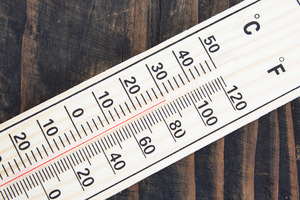
You may have noticed that your sleep apnea symptoms seem to worsen when it’s hot outside. At first, you might think you’re imagining things, but the truth is that temperature can have a significant impact on the severity of your sleep disorder, and you need to be aware of this relationship if you want to get the best possible rest you can. Here is what you should know about the link between hot weather and sleep apnea.
How Hot Weather Affects Sleep Apnea
When you go to sleep, your body’s temperature goes down. This is thought to be a means of conserving energy. But if it’s hot out, the body will have a harder time maintaining the right temperature for sleep. Consequently, you’ll be more likely to wake up during the night.
This poses an especially big problem for people with sleep apnea. The defining trait of this sleep disorder is that it repeatedly causes breathing to stop while you’re asleep. When this happens, the body is forced to wake up to try and get some oxygen. In other words, sleep apnea can frequently interrupt your slumber – and high temperatures only serve to make the issue even more severe.
Why Sleep Apnea is a Dangerous Problem
If sleep apnea is stopping you from getting enough quality rest, it could have serious consequences. Many people with sleep apnea tend to feel exhausted or depressed during the day. Additionally, the disorder can contribute to health issues like sudden weight gain or heart disease; if ignored for too long, it could even put your life in danger. It’s important to have sleep apnea treated as soon as possible while also taking precautions to make sure that it doesn’t grow worse.
What to Do If You Have Sleep Apnea When It’s Hot Out
Obviously, there’s nothing you can do to stop it from getting hot outside. However, you can take steps to maintain a better sleeping environment. Turn on your air conditioner to keep your bedroom temperature under control. If there’s a comforter on your bed, remove it; until the weather cools down again, it’s better to sleep under the sheets. Additionally, you can set up a fan to blow on you while you’re sleeping.
Seeking professional treatment is also important for keeping your sleep apnea under control regardless of what the weather is like. If you have already been diagnosed with sleep apnea, you can reach out to a sleep dentist to see if you might be a candidate for oral appliance therapy.
About the Author
Dr. Gary Radz was diagnosed with severe sleep apnea in the past. He found that he was unable to use a CPAP machine, but he eventually discovered the benefits of wearing oral appliances to manage sleep-disordered breathing. Today, he helps other people with sleep apnea find lasting relief at Downtown Denver Sleep Solutions. To schedule a consultation with Dr. Radz, visit his website or call (303) 377-5337.